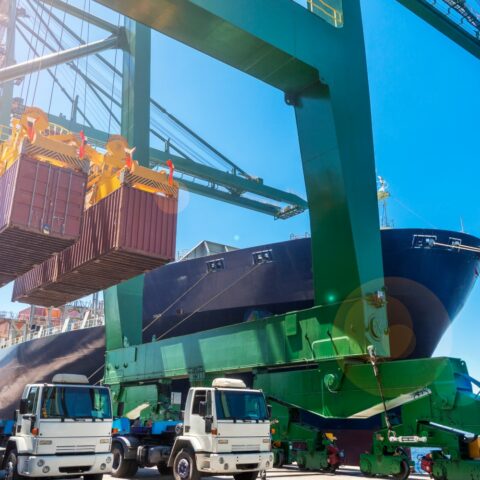The Challenge
Mozambique has made steady progress in reducing child mortality rates but vaccinable diseases such as diphtheria, measles, rubella, and polio still represent serious challenges to public health.
Imports of certain products, including pharmaceuticals, are subject to pre-shipment inspections. Routine vaccines would take up between two and four weeks to clear border controls, delaying distribution while incurring the additional cost of storing perishable products in a controlled environment.
Importers had to navigate complex, inefficient, paper-based approvals procedures involving several agencies and inconsistent classifications. Also, although vast quantities of goods were the same or very similar, every consignment would be treated individually.
What We Did
The Alliance partnered with UNICEF to work with government agencies to reform the processes governing the importation of a range of essential vaccines and associated medical products. The reforms reduced processing times, improved shipment traceability, and cut costs stemming from vaccine storage and inventory management.
Initially, the main problem was thought to lie with Customs, but data analysis showed that inconsistent, overlapping, or duplicative product codes at the pre-shipment authorisation stage were largely responsible for creating border delays by bringing individual discretion in classifying goods into play.
Vaccines required a written pre-shipment government authorisation that included details on their country or origin, proof of effectiveness, and details on the shipment’s contents. The application and approval process could take as much as two weeks while the vaccines are being held in storage.
The project digitalised these processes by integrating them into Mozambique’s existing Single Window and established ways for relevant government ministries, health agencies, and Customs to coordinate more effectively on vaccine imports.
These efforts supported Mozambique in cutting the time and costs involved in importing routine vaccines, including those for diphtheria, tetanus, hepatitis B, pneumonia, meningitis, measles and rubella, and polio.
This initiative not only streamlined and digitalised existing processes, it examined the feasibility of creating a master authorisation certificate to cover multiple vaccine and health product consignments. Customs also supported the project through developing expedited release processes.
It was implemented in cooperation with the Mozambique Ministry of Health, the Ministry of Industry and Commerce, the National Medicines Regulatory Authority, Central Medical Stores within the Ministry of Health, as well as Customs and the National Trade Facilitation Committee. From the private sector, Alliance business partners provided industry expertise and relevant data.
The Impacts
Digitalisation of processes and closer coordination among relevant agencies:
- reduced the time and cost of importing key vaccines and associated products
- improved the traceability of these critical medical supplies and reduced the risks of delay posed by misplaced, incorrect, or damaged paperwork
- increased cooperation and collaboration between different border and government agencies.
Private traders, who import the vaccines and related medical products on the government’s behalf, see lower direct and indirect costs relating to storage and inventory issues stemming from delays at the border.
The project can make a significant contribution toward the government’s five-year comprehensive vaccination campaign and boost overall public health by ensuring that all Mozambicans and particularly children are vaccinated against the most common diseases.


 Mozambique
Mozambique

